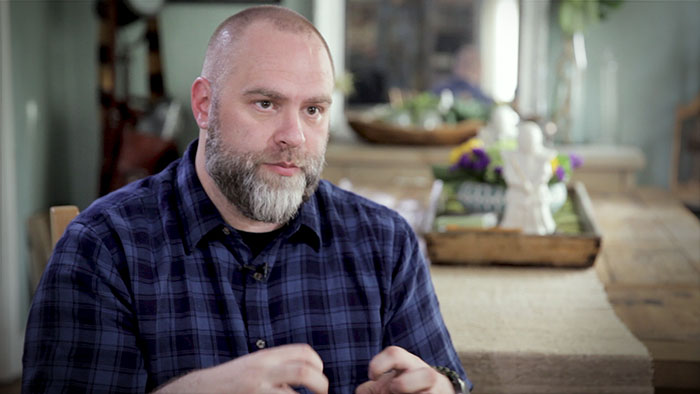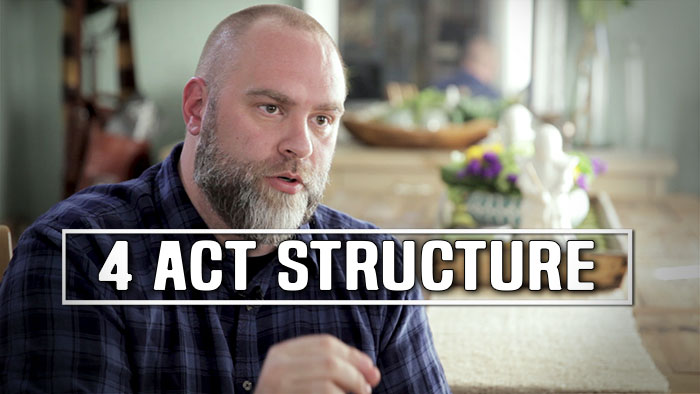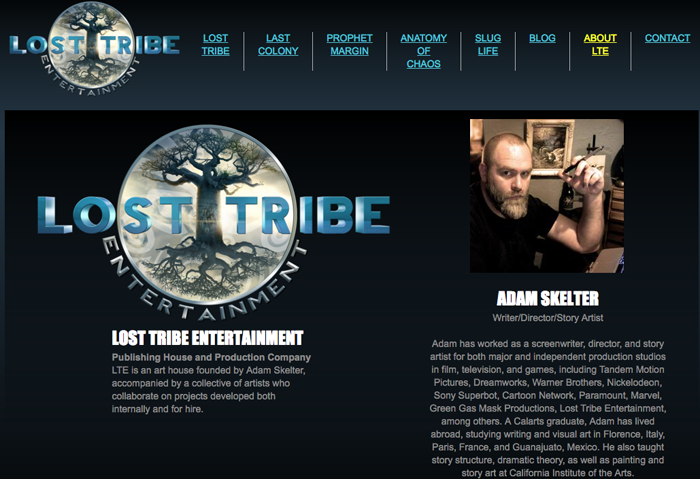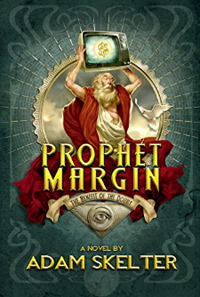
Watch the video interview on Youtube here
Film Courage: I know you’re a fan of Joseph Campbell (The Hero’s Journey).
Adam Skelter, writer, director, story artist: Yes.
Film Courage: And most people are. There’s not really any criticism of him…is there?
Adam: Well, I’ve learned so much from Joseph Campbell. I discovered him pretty young. I was 16 or 17 when I started reading him and I was amazed by it and of course the thing that was nice about it was that he was the foray into [Carl] Jung and the theory of archetypes and things like that.
While Campbell is dense, it’s a totally different thing to delve into, Jung and [Sigmund] Freud and all those things.
And part of the issue is…and I know the hero and the hero’s journey and people regard the hero one of the central archetypes of the character. But I think Joseph Campbell illuminated certain insights into story that were incredibly helpful but I don’t think it’s enough of a complete theory and I plan on doing a video [On Adam’s Youtube channel] later just to get more specific.
But just to give a teaser ultimately when we look at a hero, it’s a very specific kind of character. That’s why I tend to refer to things as a protagonist versus a hero.
A hero is someone that exhibits certain virtues and values that are considered ideal and usually the story is about them testing their medal. But the story can be so much more than just kind of a vulgar propaganda on exhibiting ideal virtues.
And that’s why I think the hero’s journey is brilliant and fantastic.
One thing that I liked about Joseph Campbell is that he was exploring the universality of story structure but I don’t think it’s enough of a complete paradigm because when we look at why we tell stories, it doesn’t quite account for the initiation of the tribe or into the tribe and that’s what I think is very fascinating to me is my next video is about tribalism actually. I’m in the process of talking about tribalism. I set up the relationship between religion and story in one video and I’m going to tie into tribalism. And I’m defining tribalism in a very specific way. I’m going to go into the biological imperatives that form tribalism (in this little teaser).

Watch the video interview on Youtube here
There are different groups of people who define themselves according to what their objectives are. So for example a community is a group of people with a common interest. A movement is a group of people with a common cause. A tribe is a group of people with a common enemy. They have very, very different ways of functioning. If you have an enemy that usually creates a…loyalty becomes very important, it’s a virtue within the tribe.
Within a community of broad, open interests you don’t necessarily need loyalty in order to function. You can just have voluntary interactions.
With tribalism because it defines itself by its enemy and it presents it as a threat and therefore hierarchy becomes very important. A lot of stories throughout most of the history of humanity were designed to help create those hierarchies. So because most tribes were surviving in the context of a lot of constant threat (perpetual threat) which means they had to live in very rigid communities or rigid groups of people. So the narratives in the stories they would tell were always about hero structure. They were designed to help people incorporate these values and these virtues as vital to survival.
So because of that, this hero’s journey was ultimately a kind of propaganda because it was designed to drive people’s behavior and value system to be subject and loyal to the tribe. That’s why I think stories that are more engaged and more engaged in moral ambiguity have much more interesting things to tell because they are not just interested in exposing and propagating specific narrow values that emphasize loyalty but instead will actually explore the nature of the human condition. And that’s what I think is a much more interesting thing. If we can understand the way that story is a kind of exploration of values rather than just a propagation of values, then I think we actually have more meaningful discourse in understanding story and humanity.
Question For The Viewers: What thoughts do you have on the hero’s journey, tribalism, and stories that emphasize moral ambiguity.
BUY THE BOOK – THE LOST ART OF STORY: The Anatomy Of Chaos Transcripts
https://amzn.to/2JwhRuk
BUY THE BOOK – PROPHET MARGIN: The Benefit Of The Doubt
https://amzn.to/2uW7Y6d
WATCH ADAM SKELTER’S INSPIRING WORK: THE ART OF STORY
https://www.youtube.com/watch?v=amW7864Lcn4
CONNECT WITH ADAM SKELTER
Losttribeentertainment.com
Facebook
Facebook Group
Twitter
Like this video? Please subscribe to our Youtube channel. Or love this video and want more? You can show additional support via our Youtube sponsor tab (hit the JOIN button on the front page of our Youtube channel in the upper right hand corner or underneath any video if watching on Youtube) or through Patreon.
Advertisement – contains affiliate links:
If you’re not quite ready to let go of the Halloween spirit, new indie feature film Mandao of the Dead is now available on Amazon VOD.
Mandao (Man-Day-Oh) of the Dead is about Jay Mandao and his nephew-in-law Jackson who use astral projection to reverse a ghost’s death on Halloween.
This astral comedy is the second feature film Written and Directed by Scott Dunn and produced by Gina Gomez Dunn. It was filmed in 10 days with a production budget of just $13k. The duo’s first feature film, Schlep won Best Comedy/Dramedy at the Hollywood Boulevard Festival and was nominated in 5 different categories at the FirstGlance Film Festival. Schlep is also available on Amazon. Mandao of the Dead will be released on iTunes and DVD/Blu-ray in January 2019.




























